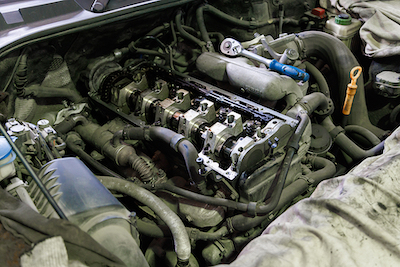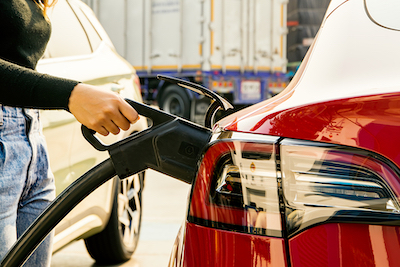Internal combustion engines have been around for over a century and have become a crucial component of modern-day transportation. They power everything from cars to trucks, trains, and even airplanes. Two types of internal combustion engines that are commonly used in transportation are gas and diesel engines. While both engines serve the same purpose, they operate differently, have distinct advantages and disadvantages, and are suited for specific applications. In this article, we’ll compare gas and diesel engines, examining their differences in detail.
Fuel Composition and Combustion Process
The fundamental difference between gas and diesel engines is the fuel they use. Gasoline engines, also known as spark-ignition engines, use gasoline as their primary fuel. Gasoline is a volatile, highly-flammable liquid made from crude oil. It has a lower energy density than diesel, meaning it produces less energy per unit of volume. In a gasoline engine, a spark plug ignites the air-fuel mixture, creating a small explosion that pushes the piston down and turns the crankshaft, which powers the car’s wheels.
Diesel engines, on the other hand, use diesel fuel, which is a heavier, less volatile fuel that is also made from crude oil. Diesel has a higher energy density than gasoline, meaning it produces more energy per unit of volume. In a diesel engine, the fuel is injected into the combustion chamber, where it is compressed by the piston. The high compression causes the fuel to ignite spontaneously, without the need for a spark plug.
As a result of these differences in fuel and combustion process, gas engines and diesel engines have distinct characteristics in terms of power, efficiency, and emissions.
Power and Efficiency
Gasoline engines are generally smaller and lighter than diesel engines, but they produce less torque and horsepower. Torque is the force that rotates an object, while horsepower is the amount of power an engine can produce over time. Gasoline engines are designed to operate at higher RPMs (revolutions per minute), which means they produce less low-end torque but more high-end horsepower. This makes gasoline engines well-suited for vehicles that require quick acceleration and high speeds, such as sports cars.
Diesel engines, on the other hand, are larger and heavier than gasoline engines, but they produce more torque and less horsepower. Diesel engines operate at lower RPMs, which means they produce more low-end torque and less high-end horsepower. This makes diesel engines well-suited for vehicles that require towing capacity and low-end power, such as trucks and SUVs.
In terms of fuel efficiency, diesel engines are generally more efficient than gasoline engines. This is because diesel fuel has a higher energy density than gasoline, meaning it produces more energy per unit of volume. Additionally, diesel engines have a higher compression ratio than gasoline engines, which means they extract more energy from each unit of fuel. As a result, diesel engines can achieve better fuel economy than gasoline engines, which makes them popular for long-distance travel and commercial transportation.
Emissions
One of the most significant differences between gas and diesel engines is their emissions. Diesel engines produce less carbon dioxide (CO2) than gasoline engines, but they produce more nitrogen oxides (NOx) and particulate matter (PM). NOx is a harmful gas that contributes to smog and respiratory problems, while PM is a mixture of tiny particles that can cause lung damage and other health problems.
To comply with environmental regulations, modern diesel engines are equipped with emissions control systems, such as diesel particulate filters and selective catalytic reduction systems, which reduce the amount of NOx and PM they produce. Gasoline engines, on the other hand, produce more CO2 than diesel engines but fewer NOx and PM. This is because gasoline engines have a lower compression ratio than diesel engines, which means they extract less energy from each unit of fuel, resulting in a higher volume of CO2 emissions.
Additionally, advances in technology have led to the development of hybrid and electric vehicles, which produce zero emissions and are becoming increasingly popular as consumers become more conscious of their environmental impact.
Maintenance and Cost
Gasoline engines are generally less expensive to purchase than diesel engines, but they require more frequent maintenance. Gasoline engines have more moving parts than diesel engines, which means they are more susceptible to wear and tear. Additionally, gasoline engines require regular oil changes, spark plug replacements, and other routine maintenance tasks to keep them running smoothly.
Diesel engines, on the other hand, are more expensive to purchase than gasoline engines, but they require less frequent maintenance. Diesel engines have fewer moving parts than gasoline engines, which means they are less susceptible to wear and tear. Additionally, diesel engines can go longer between oil changes and other routine maintenance tasks, which can save money over the long term. Diesel engines are also famous for outlasting gasoline engines in terms of lifespan.
When it comes to fuel costs, diesel fuel is generally more expensive than gasoline. However, because diesel engines are more fuel-efficient, they can often save money in the long run, particularly for vehicles that are used for long-distance travel or commercial transportation.
Gas and diesel engines both serve the same purpose, but they have distinct characteristics that make them suited for specific applications. Gasoline engines are well-suited for vehicles that require quick acceleration and high speeds, such as sports cars, while diesel engines are well-suited for vehicles that require towing capacity and low-end power, such as trucks and SUVs.
Diesel engines are generally more fuel-efficient than gasoline engines, but they produce more NOx and PM emissions. Advances in technology have led to the development of emissions control systems, which have helped reduce the amount of harmful emissions produced by diesel engines.
Ultimately, the choice between a gas engine and a diesel engine will depend on the specific needs and requirements of the vehicle owner. Factors such as power, efficiency, emissions, maintenance, and cost must be considered when choosing between these two types of engines. As technology continues to evolve, we can expect to see further advances in internal combustion engines, as well as the development of new, cleaner, and more efficient technologies.













